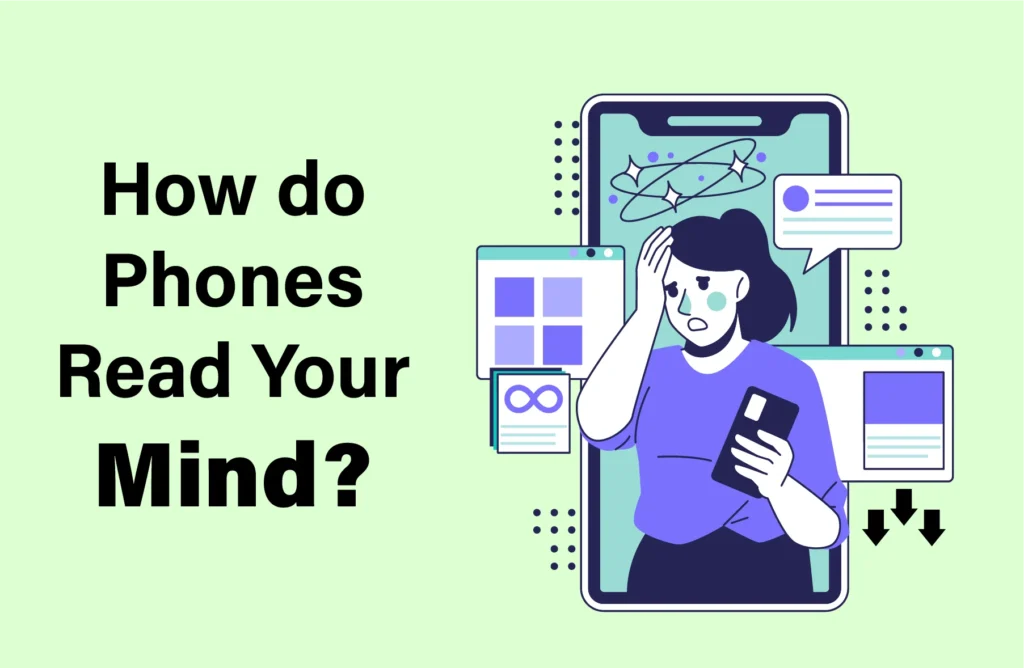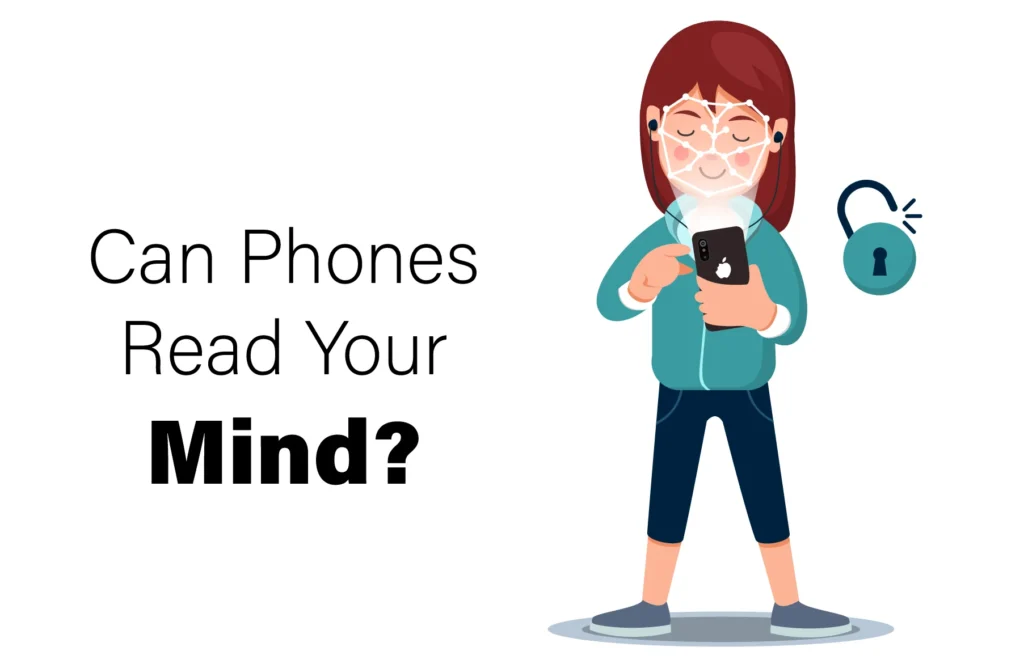Imagine you’re chatting with a friend about a dream vacation to Hawaii. You haven’t searched for flights, browsed travel sites, or posted about it online. But minutes later, your phone lights up with an ad for Hawaiian Airlines. Spooky, right? It feels like your phone can read your mind. But is that really what’s happening? Can phones read your mind? Or is there another explanation?
Setting the Stage
Smartphones have become essential companions, always with you, helping you through your daily life. They keep you connected and entertained and sometimes even surprise you. But as they become more parts of your daily routines, they seem mysterious. How do they seem to understand what you’re thinking? Can cell phones really read your mind, or is there a different reason for how they predict your interests and needs?
Also Read: Why Does My Phone Say “SOS Only”?
Story Behind the Mystery
Phones can appear almost psychic, but they don’t actually read minds. However, it can certainly feel like phones can read your mind. The reality is both fascinating and a bit alarming. They gather and analyze massive amounts of data to make educated guesses about what you want or need. Here’s how it works:
- Data Collection: Phones are like digital detectives. They constantly collect clues through apps, searches, social media, and your location.
- Algorithms: These clues are processed by advanced algorithms that can accurately predict your interests and preferences.
- Advertising: Companies use this data to show you surprisingly accurate ads.
How do Phones Read Your Mind?

- Microphone Access: Some apps can access your phone’s microphone and pick up on keywords from your conversations. 55% of Americans still believe that their smartphones are spying on them. Ever wonder why an ad for dog food popped up after you talked about your new puppy?
- Search History: Your internet searches are meticulously tracked and analyzed. Thinking of buying a new phone? Those ads didn’t appear by accident.
- Location Tracking: Your phone knows where you are and uses this data to suggest nearby restaurants or events. Coincidence or clever marketing?
- Social Media: Your activity on platforms like Facebook and Instagram is a goldmine of information. Mentioned a friend’s birthday? Expect ads for party supplies.
Real-Life Examples
- Talking About a Product: When you mention the latest gadget to a friend, ads are suddenly everywhere.
- Planning a Trip: Chat about a vacation destination, and offers for flights and hotels start flooding in.
- Health and Fitness: Discuss a new diet, and you’re bombarded with ads for fitness apps and healthy recipes.
Balance of Convenience and Privacy
While this technology can make life incredibly convenient, it raises serious privacy concerns. It’s uncomfortable to think your phone continuously collects data about you. But don’t worry. There are ways you can protect your privacy:
- Review App Permissions: Regularly check which apps can access your microphone, camera, and location. Did you really mean to let that game app listen to your conversations?
- Limit Data Sharing: Be mindful of the information you share on social media and other platforms. Remember, once it’s out there, it’s out there.
- Use Privacy Settings: Using privacy settings, you can control data collection on your phone and apps. It’s your data. You can take control of it.
How Can You Reduce Cross-Device Tracking?

According to NordVPN research, 65% of Canadians don’t know how to restrict their smartphone’s permissions from listening to them. No one likes to be tracked. Here are some practical ways to reduce cross-device tracking, suggested by Adrianus Warmenhoven:
- Use a VPN: A VPN encrypts all your internet activity and masks your IP address, preventing IP-based tracking.
- Use a Privacy Browser: Unlike Google Chrome’s incognito mode, browsers like Tor or DuckDuckGo don’t profile you or save your data.
- Change App Permissions: Revoke unnecessary permissions from your apps. For example, a photo-editing app doesn’t need access to your microphone.
Quick Tips for Privacy
Stay savvy, stay safe, and enjoy the benefits of modern technology without sacrificing your privacy!
| Feature | How It Works | What You Can Do |
| Microphone Access | Apps listen for keywords in conversations | Turn off microphone access for apps |
| Search History | Tracks your online searches | Clear your search history regularly |
| Location Tracking | Use your location to suggest local services | Disable location tracking in settings |
| Social Media | Analyze your activity for targeted ads | Be mindful of the information you share on social media |
| VPN | Encrypts your internet activity | Use a VPN to hide your IP address |
By staying aware and proactive, you can enjoy the benefits of modern technology while keeping your personal information secure.
Final Verdict
After exploring how phones collect data to predict your preferences and interests, it’s evident that they can’t actually read minds. Instead, they use advanced algorithms and data analysis to make educated guesses. This technology enhances your online experience with personalized suggestions and ads while raising significant privacy concerns. This situation prompts important questions about privacy in digital lives, emphasizing the need to understand and manage how much information you share to protect your privacy effectively in an increasingly connected world.











